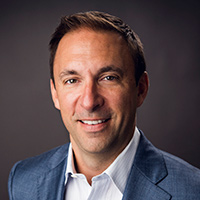5 Questions to Ask Before You Hire a Financial Professional
There are a lot of financial pros out there to choose from. These five questions can help you pick the one who's the best fit for your needs.


Profit and prosper with the best of Kiplinger's advice on investing, taxes, retirement, personal finance and much more. Delivered daily. Enter your email in the box and click Sign Me Up.
You are now subscribed
Your newsletter sign-up was successful
Want to add more newsletters?

Delivered daily
Kiplinger Today
Profit and prosper with the best of Kiplinger's advice on investing, taxes, retirement, personal finance and much more delivered daily. Smart money moves start here.

Sent five days a week
Kiplinger A Step Ahead
Get practical help to make better financial decisions in your everyday life, from spending to savings on top deals.

Delivered daily
Kiplinger Closing Bell
Get today's biggest financial and investing headlines delivered to your inbox every day the U.S. stock market is open.

Sent twice a week
Kiplinger Adviser Intel
Financial pros across the country share best practices and fresh tactics to preserve and grow your wealth.

Delivered weekly
Kiplinger Tax Tips
Trim your federal and state tax bills with practical tax-planning and tax-cutting strategies.

Sent twice a week
Kiplinger Retirement Tips
Your twice-a-week guide to planning and enjoying a financially secure and richly rewarding retirement

Sent bimonthly.
Kiplinger Adviser Angle
Insights for advisers, wealth managers and other financial professionals.

Sent twice a week
Kiplinger Investing Weekly
Your twice-a-week roundup of promising stocks, funds, companies and industries you should consider, ones you should avoid, and why.

Sent weekly for six weeks
Kiplinger Invest for Retirement
Your step-by-step six-part series on how to invest for retirement, from devising a successful strategy to exactly which investments to choose.
You’ve been saving, contributing to your work savings plan and even doing some investing for your retirement, and now you’ve decided you need help.
Or, more help. Or, better help.
Where should you even start? There are countless financial professionals out there, referring to themselves by different titles, listing various licenses and affiliations, and offering grandiose claims for peace of mind in your golden years. How do you possibly narrow it down to an industry leader who’s really right for you?
From just $107.88 $24.99 for Kiplinger Personal Finance
Become a smarter, better informed investor. Subscribe from just $107.88 $24.99, plus get up to 4 Special Issues

Sign up for Kiplinger’s Free Newsletters
Profit and prosper with the best of expert advice on investing, taxes, retirement, personal finance and more - straight to your e-mail.
Profit and prosper with the best of expert advice - straight to your e-mail.
In the end, it will come down to the person you feel you can trust, who welcomes your questions and concerns, and who will be on your side for the long haul. You can get a sense about whether someone is a good fit from an interview – but you have to go into it prepared with the right questions and how the responses will help you meet your goals.
Here are some questions to get you started.
1. Do you work for any specific company, and what investments do you recommend the most?
The answer will tell you how the person operates. Are you dealing with a broker working toward corporate quotas, or are you dealing with an adviser who wants to work for you and toward your goals?
Think of it like a visit to a new doctor. You wouldn’t want to be prescribed something until you had a thorough examination. If you did need treatment, you would want to choose from the best options, not just the ones with which the medical group has made an agreement.
You want to hear advisers say that they are client-centric, not product-centric. And advisers shouldn’t be able to give you any advice until they have completed a full analysis of your situation.
2. What is your investment approach?
One term you may hear is “buy and hold,” which means to invest for the long term. It’s a philosophy that’s been around for a while and might make you feel safe and comfortable. The problem is when it turns to “buy and hope.” That may not be the best prescription for today’s investors. What you’re trying to decipher is whether the adviser just isn’t current with new strategies, or maybe, going back to the doctor metaphor, the adviser is more interested in treating a lot of patients rather than taking the time to figure out what’s best for each.
On the other hand, if the approach is to buy a lot of stocks and trade them back and forth, you’re likely dealing with more of a stockbroker mentality, where commissions are made from each move. Your age should also be a factor here. If you are close to retiring, there may be too much risk involved compared with the risk tolerance you had earlier in your career.
What we recommend is a match approach — not too cold, not too hot, but just right. You want an adviser who doesn’t have just one strategy, but rather a plan customized to meet your goals and needs.
3. What are your fees?
Most consumers don’t know much about the different ways financial professionals are paid: fee-only, fee-based or commission-based.
Again, the structure that’s best for you will depend on where you are in your financial life. If you’re a do-it-yourselfer, a fee-only adviser or stockbroker might work well for your needs. But for most people, a fee-based adviser is the best option. This type of adviser will be looking out for your money full time. Why? The adviser has skin in the game. Your loss is the adviser’s loss, and your gain is their gain.
What you really want to hear is that your adviser can work under whatever structure you need at that particular time. If this were a doctor, your adviser would be your primary care physician and your specialist, with the knowledge and experience to offer you the best scenario.
4. What’s the minimum amount of money you will work with?
Many financial professionals start out as brokers selling products to anyone who needs them. But then, as they gain experience, many realize they don’t want to be pulled off track by lots of small accounts, so they’ll set a minimum on the amount of money they’ll manage. This can be good or bad depending on where you are with your portfolio. But if you’re looking for an adviser who has opted for quality over quantity, a minimum isn’t a bad thing. It means you’re getting someone who’s focused on your needs.
5. How are you different from other advisers?
This question can really put people on the spot. If potential advisers spout a company line about “our firm,” they may be telling you that they track the home office’s goals, not yours.
Advisers you are considering should be able to tell you what makes them special, what sets them apart. For example, do they have a focus on tax planning or preservation or estate planning? You want to get a sense that they care. You want to see passion, that they love what they’re doing and that this is more than a job to them.
Potential advisers should have more than 10 years of experience to have been through recent market trends and fluctuations — and survived. In addition, they should be able to speak to their ability to team up with other professionals — tax and estate attorneys, CPAs, etc. — to be able to offer comprehensive wealth management.
You should interview advisers — but they should also interview you. If they don’t think they can suit your needs, you want them to be willing to say so and give you a referral to an adviser who might be a better fit.
Kim Franke-Folstad contributed to this article.
Profit and prosper with the best of Kiplinger's advice on investing, taxes, retirement, personal finance and much more. Delivered daily. Enter your email in the box and click Sign Me Up.

Patrick W. Ayers is the founder of Ayers Financial Services. A graduate of Virginia Tech, where he earned a degree in finance, he maintains the designation of Registered Financial Consultant and is a member of the Association of Registered Financial Consultants and the International Association of Financial Planning.
Ayers shares his wisdom as weekly host of the “Financial Sanity” radio show and often serves as a guest speaker on radio and television, and he frequently holds informational seminars for corporations, universities, charities and individuals. He and his wife, Tara, and their three children live in Roanoke, Virginia. His interests include his kids’ sports, listening to music and watching Virginia Tech “Hokie” football.
Securities and advisory services are offered through Madison Avenue Securities, LLC (MAS), member FINRA/SIPC, and a Registered Investment Advisor. MAS and Ayers Financial Services are not affiliated entities.
The opinions of Patrick Ayers and Ayers Financial Services are their own.
-
 Over 65? Here's What the New $6K Senior Bonus Deduction Means for Medicare IRMAA
Over 65? Here's What the New $6K Senior Bonus Deduction Means for Medicare IRMAATax Breaks A new deduction for people over age 65 has some thinking about Medicare premiums and MAGI strategy.
-
 U.S. Congress to End Emergency Tax Bill Over $6,000 Senior Deduction and Tip, Overtime Tax Breaks in D.C.
U.S. Congress to End Emergency Tax Bill Over $6,000 Senior Deduction and Tip, Overtime Tax Breaks in D.C.Tax Law Here's how taxpayers can amend their already-filed income tax returns amid a potentially looming legal battle on Capitol Hill.
-
 5 Investing Rules You Can Steal From Millennials
5 Investing Rules You Can Steal From MillennialsMillennials are reshaping the investing landscape. See how the tech-savvy generation is approaching capital markets – and the strategies you can take from them.
-
 When Estate Plans Don't Include Tax Plans, All Bets Are Off: 2 Financial Advisers Explain Why
When Estate Plans Don't Include Tax Plans, All Bets Are Off: 2 Financial Advisers Explain WhyEstate plans aren't as effective as they can be if tax plans are considered separately. Here's what you stand to gain when the two strategies are aligned.
-
 Counting on Real Estate to Fund Your Retirement? Avoid These 3 Costly Mistakes
Counting on Real Estate to Fund Your Retirement? Avoid These 3 Costly MistakesThe keys to successful real estate planning for retirees: Stop thinking of property income as a reliable paycheck, start planning for tax consequences and structure your assets early to maintain flexibility.
-
 I'm a Financial Planner: These Small Money Habits Stick (and Now Is the Perfect Time to Adopt Them)
I'm a Financial Planner: These Small Money Habits Stick (and Now Is the Perfect Time to Adopt Them)February gets a bad rap for being the month when resolutions fade — in fact, it's the perfect time to reset and focus on small changes that actually pay off.
-
 Social Security Break-Even Math Is Helpful, But Don't Let It Dictate When You'll File
Social Security Break-Even Math Is Helpful, But Don't Let It Dictate When You'll FileYour Social Security break-even age tells you how long you'd need to live for delaying to pay off, but shouldn't be the sole basis for deciding when to claim.
-
 I'm an Opportunity Zone Pro: This Is How to Deliver Roth-Like Tax-Free Growth (Without Contribution Limits)
I'm an Opportunity Zone Pro: This Is How to Deliver Roth-Like Tax-Free Growth (Without Contribution Limits)Investors who combine Roth IRAs, the gold standard of tax-free savings, with qualified opportunity funds could enjoy decades of tax-free growth.
-
 One of the Most Powerful Wealth-Building Moves a Woman Can Make: A Midcareer Pivot
One of the Most Powerful Wealth-Building Moves a Woman Can Make: A Midcareer PivotIf it feels like you can't sustain what you're doing for the next 20 years, it's time for an honest look at what's draining you and what energizes you.
-
 I'm a Wealth Adviser Obsessed With Mahjong: Here Are 8 Ways It Can Teach Us How to Manage Our Money
I'm a Wealth Adviser Obsessed With Mahjong: Here Are 8 Ways It Can Teach Us How to Manage Our MoneyThis increasingly popular Chinese game can teach us not only how to help manage our money but also how important it is to connect with other people.
-
 Looking for a Financial Book That Won't Put Your Young Adult to Sleep? This One Makes 'Cents'
Looking for a Financial Book That Won't Put Your Young Adult to Sleep? This One Makes 'Cents'"Wealth Your Way" by Cosmo DeStefano offers a highly accessible guide for young adults and their parents on building wealth through simple, consistent habits.